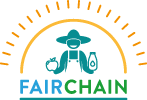
Apr 3, 2024

In the Greek Case Study, we employ blockchain technology to improve traceability, transparency, and information sharing in the context of two dairy processes chains that of the PDO Feta cheese and traditional sheep yoghurt. The blockchain-based traceability platform stores information on milk origin, milk content, and production processes for these two dairy products so that it can be later offered to the consumers. Blockchain allows a decentralized platform, where the production stakeholders contribute information which is immutably registered. Consumers have access to this information after scanning a QR code on the Feta cheese or sheep yoghurt package they have at hand or are considering buying.
This period has marked the completion of the platform design and implementation, including the Ethereum smart contracts that prove the integrity of the traceability data and the compliance of the production with the rules stemming from the legislative framework and best practices of the dairy. During this period the approach and the results have been verified through on-site piloting in Stymphalia dairy under realistic conditions. A series of Feta cheese and sheep yoghurt productions were realized and tested with the FAIRCHAIN consumer timeline blockchain-based traceability application.
The products were provided to stakeholders, consumers and to consortium members during the September 2023 project plenary meeting that took place in Greece.
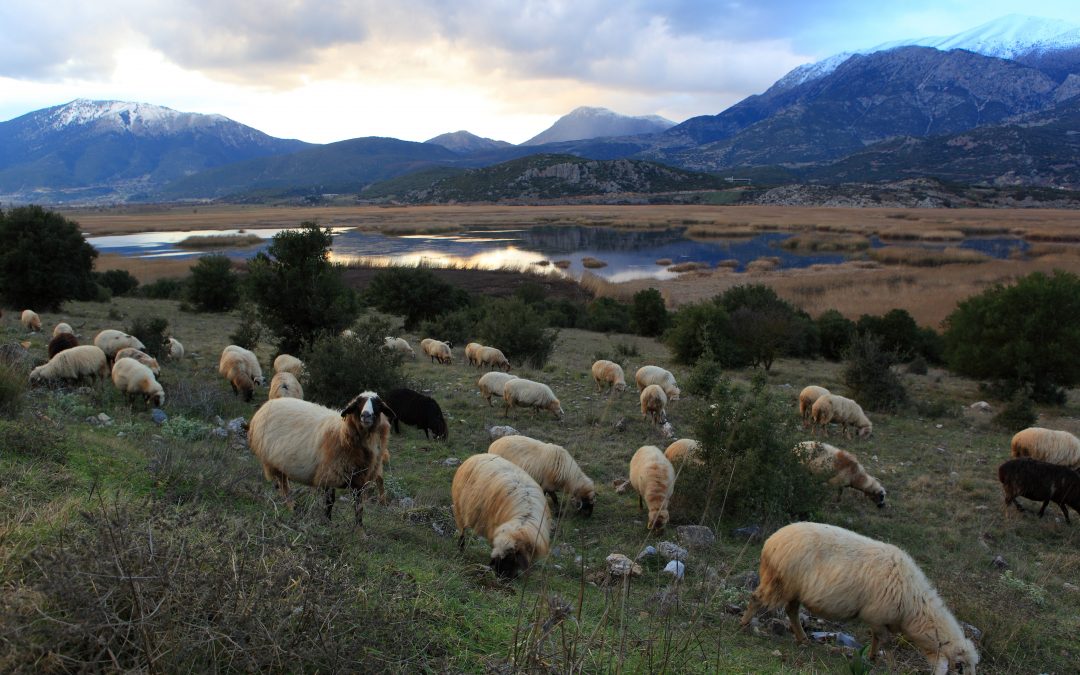
Sep 18, 2023
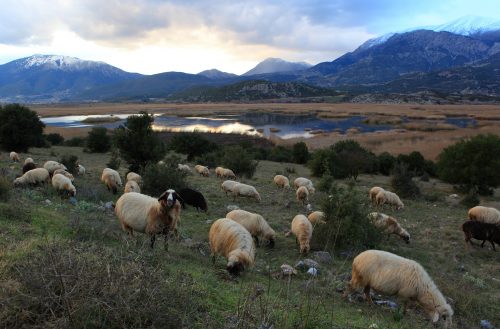
A new paper describes the data used to obtain environmental impacts – calculated by using life cycle assessment (LCA) – of the production of Feta, from cradle to consumer. It includes (sheep and goat) milk production, transformation into cheese, packaging and transport to wholesalers, stores, and consumers. The raw data have mainly been obtained through interviews and surveys with Greek cheese and milk producers working in a cooperative (seven sheep livestock and one goat livestock) and complemented by literature. This work was carried out within FAIRCHAIN’s Greek Case Study, where blockchain technology is used to improve communication of product attributes to consumers.
Samuel Le Féon, Andreas Papadakis, Gwenola Yannou-Le Bris, Julie Auberger, Dimitrios Chatzitheodorou, Joël Aubin, Caroline Pénicaud, Life cycle inventory and life cycle impact assessment datasets of PDO Feta production in Stymfalia region, Greece, Data in Brief, Volume 48, 2023, 109207, ISSN 2352-3409, https://doi.org/10.1016/j.dib.2023.109207
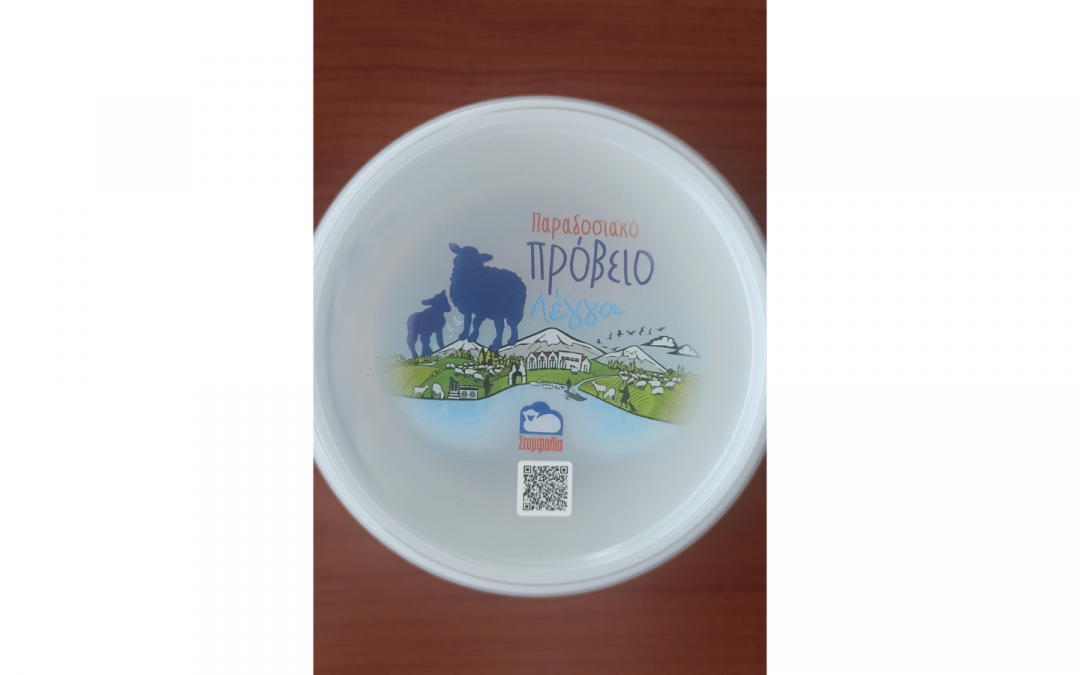
May 31, 2023
The FAIRCHAIN Blockchain solution is being evaluated as part of the Greek case study at the Stymphalia dairy premises. It concerns yogurt and feta cheese productions. Measurements are taken and the information is made available using QR codes, printed for piloting purposes on the new packaging of the products. Piloting users (and a few consumers) are led after scanning the QR to our FAIRCHAIN trustworthy, Blockchain-based traceability solution. The case study plans to contact one more retail (supermarket) to present our work and the Greek competent authority for food safety.

Nov 7, 2022

After two successful co-creation workshops – the goal-defining workshop in June 2021 and the implementation workshop in January 2022 – and an intense design and implementation period, the first version of the ICT platform for trustworthy traceability information on Feta cheese production is available.
Information from key phases, including milk collection, milk mixing and cheese processing operations is captured using the ICT system and registered in Blockchain. Blockchain, an innovative technology being piloted in food industry, allows for immutability and integrity of the information.
The usage of Blockchain, as a decentralized ledger, presents technological and organizational challenges, e.g. related to data volumes that can be handled. The combined usage of private (project – based) and public (Ethereum testnet) along with optimized data management and coding techniques employed in the case study, contribute to its smooth usage.
The case study is well aligned with the tectonic changes in the Ethereum landscape in terms of consensus algorithms. The Merge, executed on September 15, 2022, completed Ethereum’s transition to proof-of-stake consensus, officially deprecating proof-of-work and reducing energy consumption by ~99.95%.
The case study’s ‘smart contracts’ (i.e. computerized rules executed in Blockchain verifying that the operational parameters comply with the legislation framework and best practices) are PoS compliant, while we are currently migrating from Ropsten testnet to the new recommended testnet Goerli.
Stay tuned, as in the coming months the platform will be further enhanced and piloted.
Text and image contributed by Andreas Papadakis –
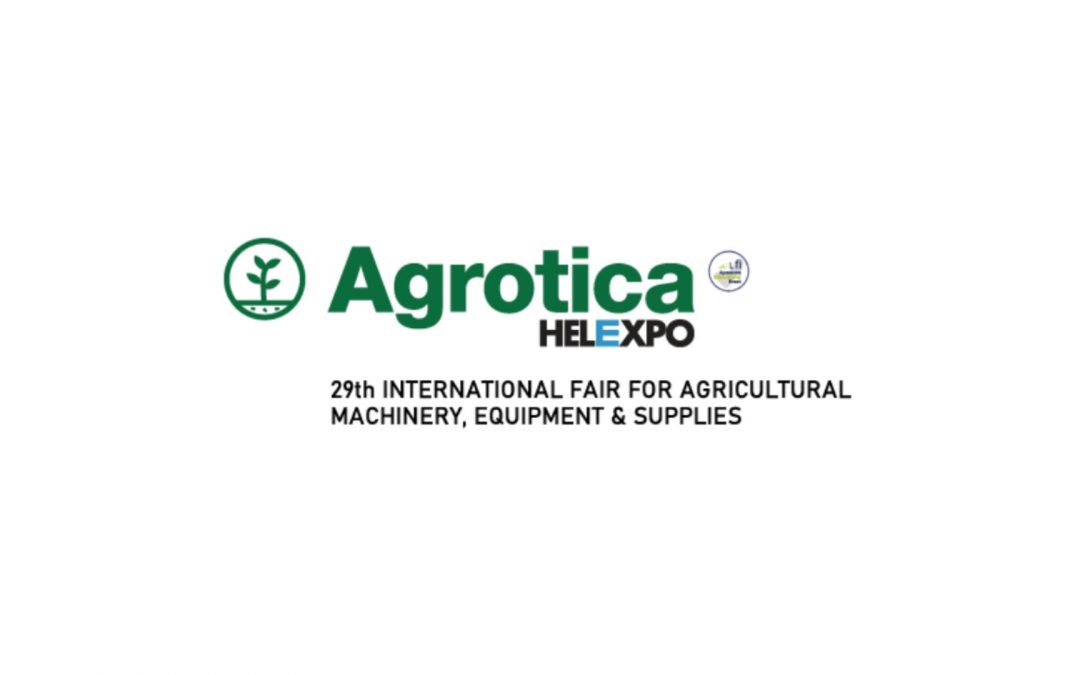
Oct 23, 2022

FAIRCHAIN results were presented by Synelixis at Agrotica – the leading exhibition event in Greece in the agro-economic sector and the largest trade fair in the Balkans and the Southeastern Mediterranean for agricultural machinery, equipment, and supplies. The event was held on 20-23 October 2022 in Thessaoliniki, Greece.
A dedicated presentation of the current Greek case study results was given, demonstrating the application of the Blockchain in traceability applications in the dairy and smart agriculture sectors. This work is well-aligned with Synelixis’ commercial activities (including SynField and SynAir), which are planned to be employed in the piloting phase of the CS.
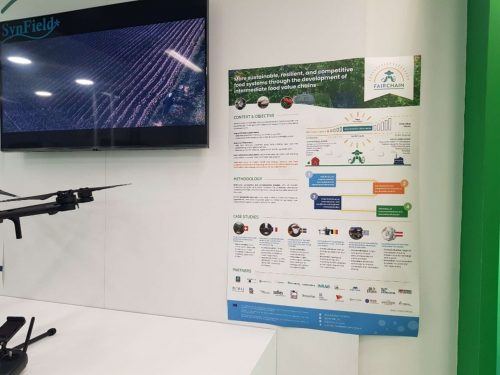
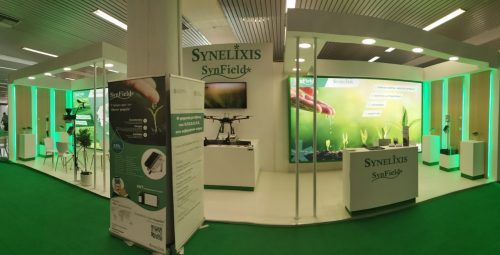
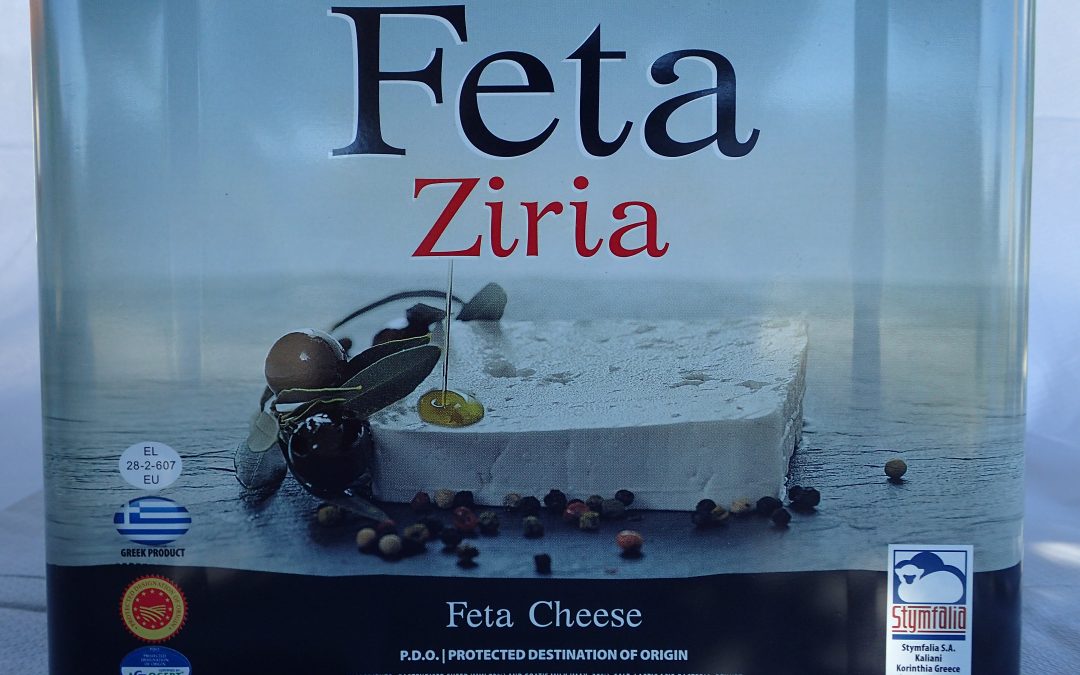
Jan 27, 2022
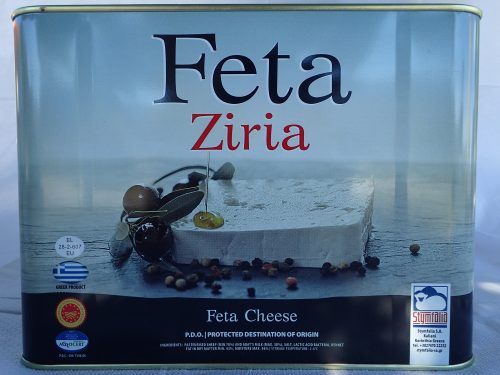
Breeders, producers, processors, representatives from retail, logistics, ICT and consumers participated in the implementation workshop of FAIRCHAIN’s Greek case study. The Feta cheese process has been demonstrated and discussed with the participants using the pilot system. Liaison with the H2020 PROTEIN project has also been established.


